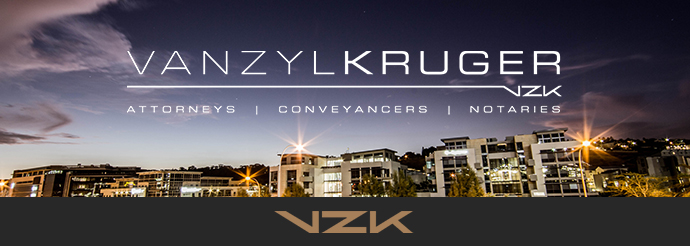|
The Expropriation Bill: Justice or Manipulation?
Hierdie maand bespreek kollega, Cheryl-Anne Ehrenreich, die emosie-gelaaide onderwerp van onteiening van eiendom sonder vergoeding vanuit ‘n regs-historiese oogpunt, met ‘n tikkie plaaslike kleur. Sy stel voorts ‘n aantal uitdagende vrae, wat beslis beantwoord moet word, alvorens daar gedink behoort te word aan ‘n formele grondwet wysiging.
Land Expropriation without compensation in South Africa has been on the cards for a number of years. Ever since this plan was made known to the public by the ANC government it has evoked mixed reactions from the different race groups in the country ranging from fear to outrage and joy. Recently the plan was expedited with the publication on 9 October 2020 of the revised Expropriation Bill in the Government Gazette. Parliament will now follow its processes to consider the Bill and every South African will have the opportunity to participate as Parliament considers, debates and consults on it.
The ANC government’s land reform policy is aimed at redressing the injustices and inequalities of the past in particular those caused by the 1913 Natives Land Act which saw black people relocated to 10 homelands where they were guided and led by traditional leaders. These were communal lands given to black people, which are still under their control.
Before looking at the Bill itself and the dangers it poses, a quick look at a group of people dispossessed of land and caught in the middle of black and white South Africa may shed some new light on the controversial land issue.
Before the British unified the Cape Colony, Transvaal Colony, Natal and the Orange River Colony to form the Union of South Africa in 1910, the Cape Colony (Cape Province) was the largest of the four traditional Provinces and contained more than half of South Africa’s total area. What is now known as the Western Cape, Eastern Cape and Northern Cape all formed part of the Cape Colony (Cape Province) whose inhabitants were mostly Coloured/Khoi people. Pre 1910 there were 23 rural areas (Coloured Rural Areas) spreading across these 4 Provinces measuring approximately 1 188 670 hectares that were given to the Coloured/Khoi people by the British. The land was, however, never transferred to these people by the authorities and is currently held in a trust for them by the Minister of Rural Development and Land Reform. Since 1994 the government has not mentioned this land and what it plans to do with it. Is justice delayed not justice denied? The Transformation of Certain Rural Areas Act, 1998 (Act No. 94 of 1998 [TRANCRAA]) states that these 23 rural areas are held on behalf of the Coloured people. There are 12 of these Coloured Rural Areas in the Western Cape, 8 in the Northern Cape, 2 in the Free State and 1 in the Eastern Cape. Furthermore, although Coloured/Khoi people were also dispossessed of land long before 1913 their claims for restitution are not recognised, because of the government’s 1913 cut-off date. Will the Expropriation Bill lead to restorative justice for the Coloured/Khoi people, or will their pre 1913 land claims be denied and the land be expropriated?
Coming back to the Expropriation Bill:
- One of the main concerns relates to the use of the word “property” instead of “land”. Although Sec 25 of the South African Constitution allows for the expropriation of property with compensation one would have expected the Bill which aims to address land reform to refer to the expropriation of land only and not property in general. People fear that this could open the door for the expropriation of other property such as houses, cars, shares in businesses and investments etc.
- Section 12(3) of the Bill allows for the expropriation of land if it’s in the public interest. Who is going to determine what’s in the public interest? Who is the public the Bill refers to? Is it the majority of South Africans or will it be limited to a local community in the area where the expropriated land is situated?
- In the Western Cape about 70% of the farms belong to the state which they’ve been leasing to farmers for the past 20/30 years. This Bill will allow expropriation of these farms which could dump the country in a food security crisis as about 27-30% of South Africa’s food production comes from the Western Cape.
- The Courts could be called upon to determine the fair value of the property. The Courts may determine, after taking certain factors into consideration, that it may be just and equitable to pay NIL compensation. The only option left to unsatisfied property owners would then be to approach the Constitutional Court, which can be very costly.
- There is also the danger of the Prevention of Illegal Evictions (PIE) Act and the Expropriation Bill working in tandem with each other. Under the PIE Act squatters enjoy protection as municipalities are not allowed to remove or evict them from the property without a court order. Municipalities are expected to provide alternative housing / land / accommodation for the squatters before an eviction court order will be granted. If they can’t do so there’s nothing stopping the land from being expropriated and given to the squatters. Will expropriation be used to force integration?
- Then there’s Sec 22 which allows for an urgent expropriation without compensation under certain circumstances.
“The truth is that nothing dissuades investors like a threat to the security of their assets, regardless of how innocuously it is couched. Local and foreign investors will think twice before investing in South Africa,” DA MP Annelie Lotriet.
Whether the Expropriation Bill will create chaos or redress the injustices of the past in a just and equitable way after passing the legal scrutiny of the Constitutional Court only time will tell.
Regards,
Hennie, Eberhard & Cheryl-Anne
Direkteure | Directors
|
|
|


